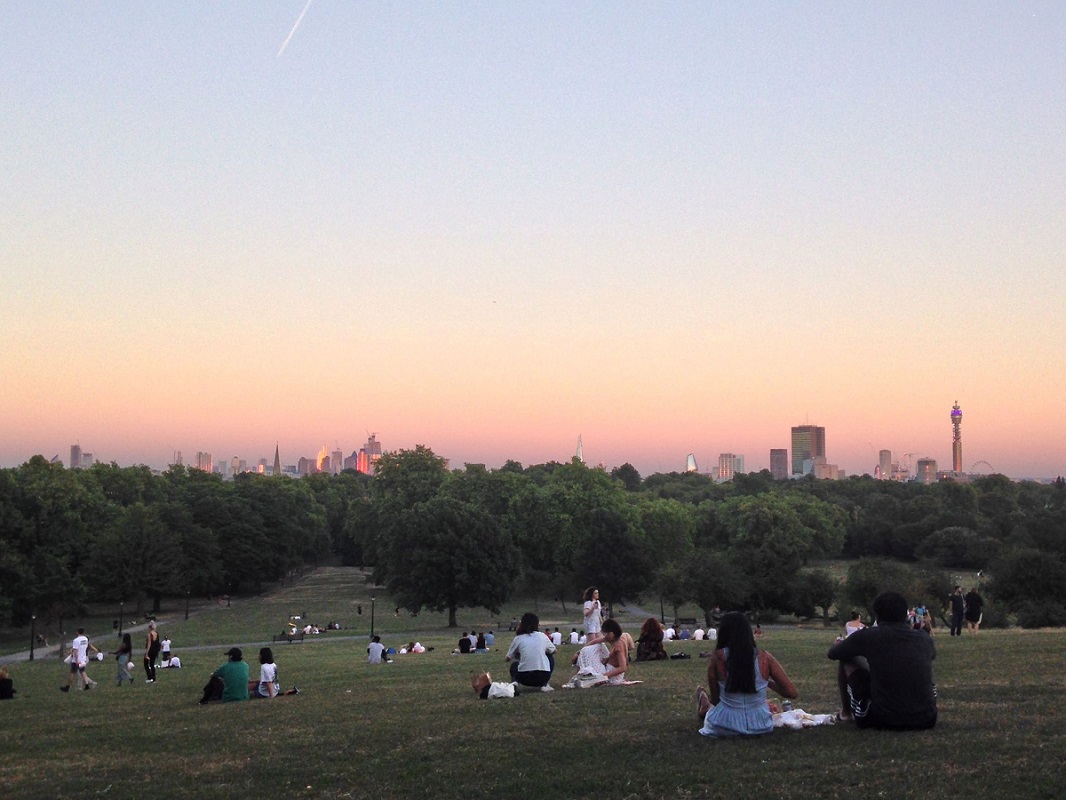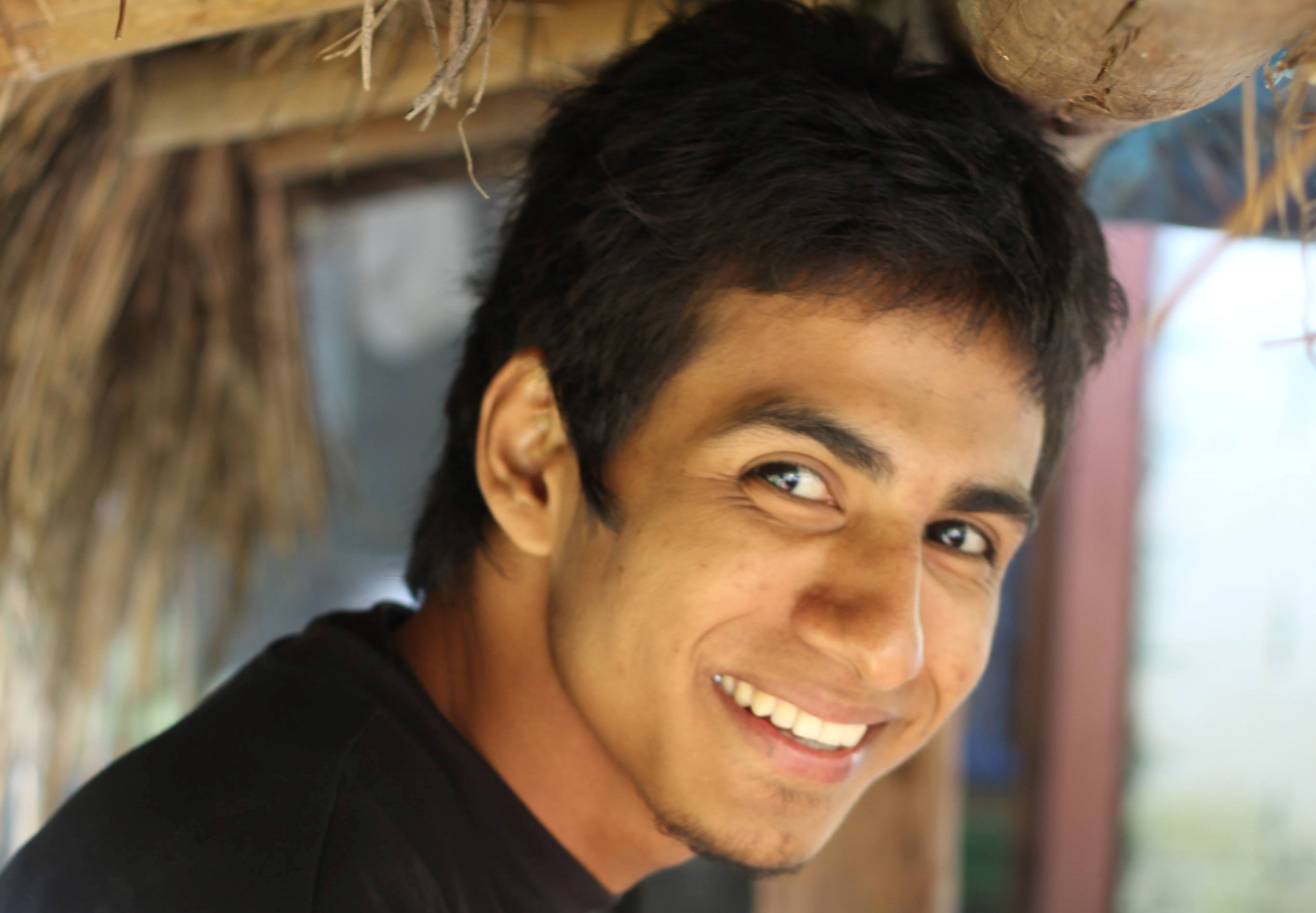Student Media Ambassador Rachel Epstein met International Development and Humanitarian Emergencies student Anna Roberts. Read about their chat here.

Anna and I pop into Paul Café on Kingsway after Professor David Keen’s Friday morning lecture on defining the enemy in a complex emergency. Perhaps a strange way to kick off the weekend, but we settle in to coffees and sandwiches with cornichons to celebrate the end of the week, regardless.
We briefly contemplated sitting outside. It’s the first day the sun has been out in…longer than we both can remember. But despite the bright, fleeting reminder that winter might soon be over, we’re reminded by a brisk wind that the air is still cold, and that it is indeed the middle of February in London.
Once we’re settled, I pull out my voice recorder. Anna’s hazel eyes widen. “Oh, boy” she says, “not one of those.”
I laugh.
“I promise it’s just for me.”
“Good,” she replies. “Because whenever I hear my voice playback on something I’m always shocked. Like that’s what I sound like?!”
I stress to her that I always set up interviews like conversations and she’s relieved.
As if ripping off a band-aid (read: plaster), I ask why she wanted to do a Masters. She takes a long sip of coffee, before telling me:
“Well, I’m American, obviously….” This seems to be the precursor to which all Americans begin their explanations. It usually comes out half-way between an apology and an affirmation. I nod.
Anna continues, “And I did my undergrad in International Relations, mostly focusing on peace and conflict studies. I loved learning about the diplomatic arena and work in development has always been something I’ve been interested in coming out of that.”
Despite her background in International Relations, Anna set aside hopes of working in development immediately following her Bachelors. Instead, she moved to Manhattan and sunk her teeth into the fast-paced world of corporate communications.
“I worked on anything from political and public affairs for corporate clients to communications campaigns for UN agencies, embassies, and non-profits.
But after two years of trading peace studies for press releases, Anna decided she needed a change.
“While I got a lot of good experience in that field, I was really interested in building on what I learnt from communications and applying my knowledge to what I had done as an undergrad.”
As a London native, I’m always curious as to why people leave their respective corners of the world to descend on England. So I ask Anna, “why London?”
“Being from the States,” she began, again, with a self-deprecating smile.
“I knew I wanted to be somewhere different for this experience. It didn’t make much sense to me to do an international development program in a place I was from and had always been based. I wanted to have a more international flavor, especially in my courses. LSE has such a reputation in this arena too.”
That the LSE is in central London is certainly a pull for most of the Americans I’ve spoken to. It’s as though there’s something comfortable about the idea of London as a source of popular familiarity, that, when paired with the rigor of the LSE makes Americans say, ‘ok, I can do this.’
Beyond choosing the LSE, choosing the right focus within the ID department is a task in itself. The offerings are wide-ranging, from management, to African development, to health, students have a breadth of options. Anna chose International Development and Humanitarian Emergencies, a course very different from my own, the flagship MSc Development Studies. I asked her why:
“Within my undergrad degree, my major focus was refugee issues and taking a look at that through the lens of post-colonialism and all of those problems,” she said.
“A lot of the crises are characterized as humanitarian emergencies, so pursuing an international development degree that focused on those issues directly made sense.”
“And how do you think your choice of program will help when you leave the LSE, particularly for your career?”
I ask this final question slowly, knowing that the ‘what next?’ question is rarely something students are wild about discussing. Thankfully, Anna was good sport and her passion was clear:
“I’m really interested in the development consulting world. I’m actually interning with a development consulting firm here in London to get an understanding of what the development consulting business is really like. Once I get an understanding, I think it would be an area that I’m definitely interested in. I’m looking at organizations that assist with more than typical economic growth and incorporate health or governance in their ethos.”
The views expressed in this post are those of the author and in no way reflect those of the International Development LSE blog or the London School of Economics and Political Science.





